
What to do when your COVID anxiety outlasts the pandemic
At the start of the pandemic, friends of mine who had never experienced debilitating anxiety were suddenly doomscrolling, spending most of their workdays speed-texting each other COVID-related news. They were riding the “what-if roller coaster.” These were the friends I typically turned to when my generalized anxiety peaks. Because of COVID, I found myself becoming a tour guide in the familiar terrain of what it means to manage anxiety. I began doling out articles on coping with anxiety to these newly anxious friends and family and sharing tools I’d gained over years of therapy. I began to feel like my past investment in my mental health could help others.
How did you experience anxiety at the beginning of COVID? Did you panic-buy toilet paper? Did that actually make you feel better? How about hoarding yeast starters? Did you feel like you were having a heart attack while scrolling through your newsfeed during the first few weeks of lockdown? And, how about now? Are you vaxxed and mingling? Or, are you still wrestling with the blanket of anxiety that last year introduced? Today’s article is for those experiencing a generalized anxiety that has outlasted the rational threat of COVID.
Why do I still have anxiety if the threat of COVID is over?
Getting vaccinated, unfortunately, is not a light switch on anxiety. Managing anxiety—no matter where or why it originated—starts with getting to know your particular flavor of anxiety. If you think back, do you remember the first time you felt anxious? What about your first panic attack? I experienced my first severe panic attack when I was 20. I’d gone to bed like any other weeknight, only to wake at 2 AM covered in sweat and feeling like I was drowning from the inside out. I was emotionally and physically choking from what felt like muffled rage. This happened several more times over the next few months—in grocery stores, while running errands, outside of nightclubs, and at dinner with friends. Luckily, a friend at one of these dinners recognized what was happening to me and suggested I see a therapist.
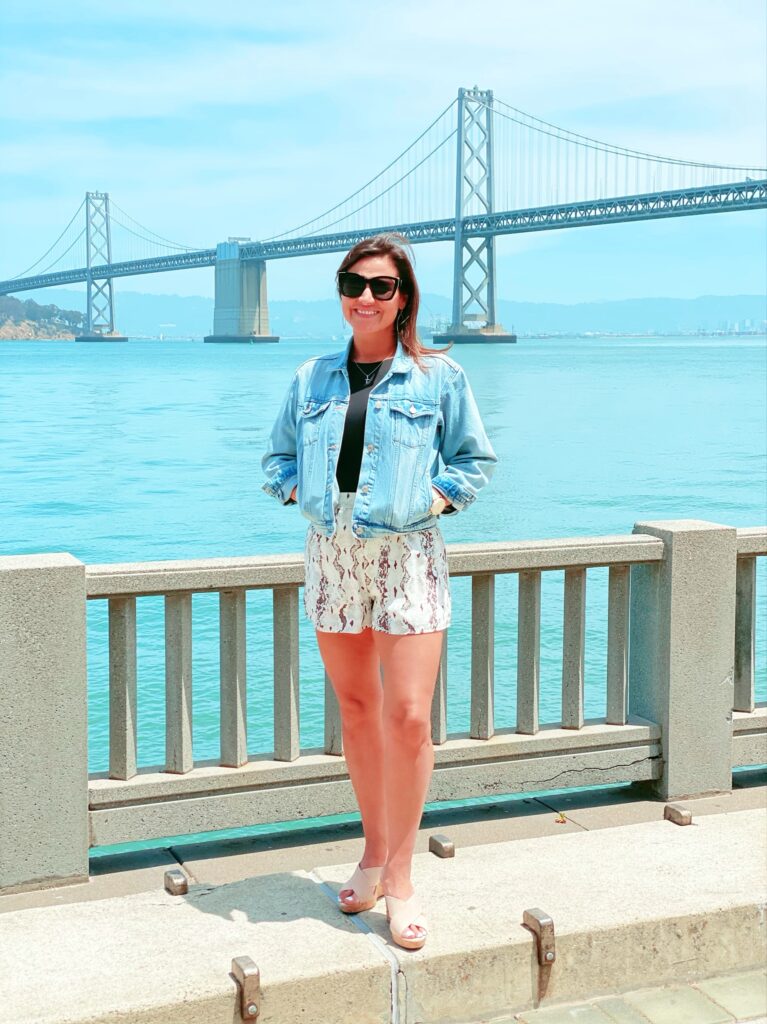
You’re upset, you’re worried, you don’t feel safe. The more you try to think your way out of fight-or-flight, the harder it will be to breathe.
At the time, I understood anxiety intellectually—I had taken a psychopathology class as an undergraduate where we were taught seven distinct representations of anxiety, including generalized anxiety disorder (GAD), social phobia, panic disorder, agoraphobia, phobias, post-traumatic stress disorder (PTSD) and obsessive-compulsive disorder (OCD). But, it wasn’t until my first therapy session that I understood my particular flavor of anxiety. I described my frequent episodes to my therapist and watched as his eyebrows disappeared into his hairline. I knew then that I was in for the long haul. After a few more sessions he prescribed BuSpar, and so began my anxiety management.
I’m now 41, and grateful to no longer compare my anxiety to drowning. Instead, I’ve learned to recognize the different types of anxiety and how they show up throughout my life. I’ve also learned where my feelings of anxiety start, when they peak, and—most importantly—how to manage them.
5 questions the newly anxious can ask to understand their anxiety
While the tips I gave my friends at the beginning of COVID were meant to provide them quick relief, truly managing anxiety for the long-haul requires more investigation. I’ve put together some questions to help you better understand your own flavor of anxiety.
Note: These questions are meant to encourage self-exploration, rather than diagnosis. If you feel triggered by answering these questions, it might be time to see a professional.
Question #1: On a scale from 1-10 (1 being neutral and 10 being a full-blown panic state with cold sweats), where do you fall right now while reading this column?
For reference, on most days I wake up at level 5. I have a generalized anxiety disorder, so I almost never experience levels 2 or 3.
Question #2: How long did it take you to adapt to COVID challenges?
Think about how long it took you to come up with ways of viewing lockdown so that it wasn’t overwhelming. Did you pick up a hobby to keep from ruminating? Did you create Zoom happy hours and solidify a COVID social-sphere? You’re not alone. Everyone found a way to adjust. How long did that take you? A day? 5 days? Longer than 6 months? How about a year and a half?
The Diagnostic and Statistical Manual of Mental Disorders (DSM 5) criteria for a generalized anxiety disorder is anxiety that occurs consistently on most days out of the week for more than six months. You could say that, under that criteria, we all just experienced what it feels like to have a generalized anxiety disorder.
Question #3: What was the most triggering aspect about the pandemic for you? Money? Safety? Existential dread?
Considering that you will always worry about money, safety, and death, what was it about the pandemic that made these worries front and center to your anxiety experience? How severe was your experience? How long did the anxiety last?
The most anxious day I had during COVID coincided with the Bay Area’s Red-Doom Day, or what the SF Chronicle labeled as, “Apocalypse on the mind.” It was an atmospheric effect that turned the sky blood red as a result of the raging wildfires that covered California in September 2020. Recovering emotionally from that week took me about a month and included a trip to the ER when my panic felt more like a heart attack than my usual anxiety. I think it’s important to note that no matter how aware you are of your anxiety, or how prepared you feel, there will be situations where stress makers mount, and your physical reaction to those markers could supersede any rational understanding of anxiety.
Have patience with yourself. I know I do.
Question #4: Have you made changes in your daily routine after recent tragedies (e.g. mass shootings or AAPI hate crimes)? How severe have those changes been?

Adjusting your routine as a way of keeping yourself and your loved ones safe is a natural instinct that is evolutionarily hard-wired. For instance, I took the measure of ditching our diaper bag so that I would be able to swoop up either kid in my arms and run towards an exit in case of an active shooter situation. Extreme? Or just being prepared? It doesn’t matter. I now feel safer in crowds. In that respect, anxiety isn’t all bad. Anxiety keeps us safe—it literally keeps us alive.
As our society becomes increasingly threatening, ask yourself how much the changes you’ve made have disrupted your general well-being. A therapist can help you discern the difference between rational safety measures, and ones taken based on perceived threats.
Question #5: Do you feel like people close to you dismiss your anxiety? Does that dismissal make you even more anxious?
Everyone has a different experience with anxiety and mental health. Consider that a loved one’s opinion about how you should handle your own mental well-being is not always going to be helpful. One of the best perspectives on anxiety that I’ve read was by M.N. Seif and S. Winston, “Anxiety symptoms cannot be vanquished with effort….. Anything done with urgency or intensity (to rid yourself of anxiety) will fall prey to the paradoxical nature of the symptoms. Anxiety is best embraced and allowed.”
The first time I read that quote, I exhaled. I could accept my anxiety. I had permission to thank people for their advice and then dismiss it as not for me:“Thank you so much, I will definitely pray about it. I will try to let go and let God!”
Yes, our inner worlds are complicated. Recognizing that you are the sole gatekeeper of outside information that is allowed inside your own mind, should give you some relief. No one else knows what it’s like to be you, so don’t let them tell you how to manage an emotion they don’t understand.
Wishing for a better state of mind
No one should resign themselves to a daily experience of mental anguish. Entering a better state of mind where you can experience joy, happiness, and love is possible by recognizing your particular symptoms with the help of a professional. Self-awareness takes work and I rarely meet people who have done it alone. That said, I have to ask, how badly do you want to feel better? As our society turns the corner on COVID, I suggest that now is the perfect time to turn the corner on our experience with anxiety.
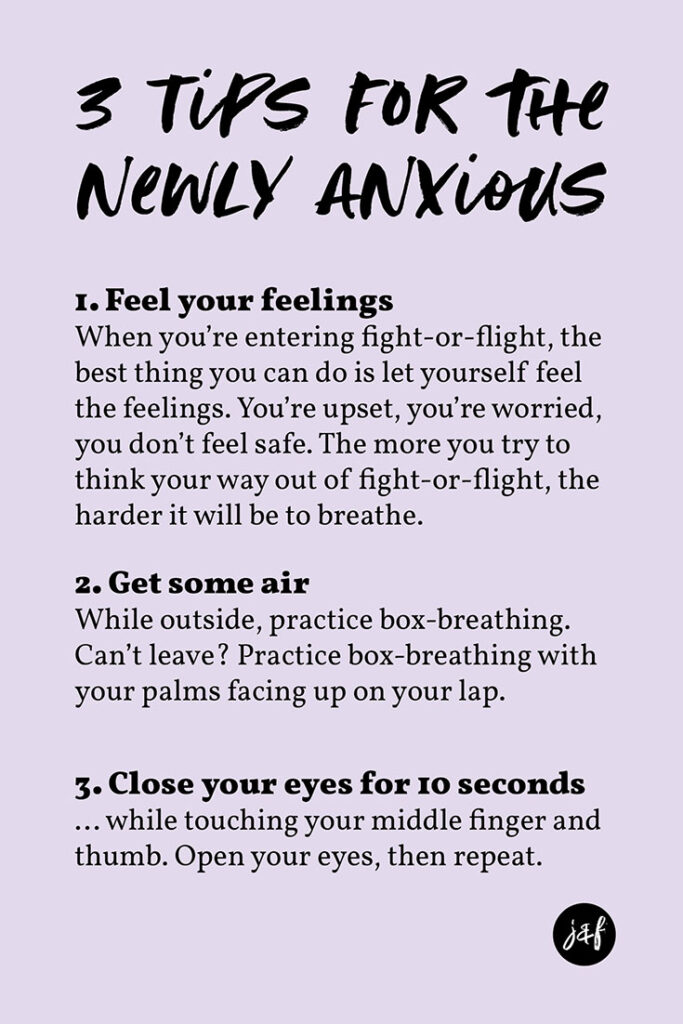
This is the first edition of Thriving While Anxious, Olga Rosales Salinas’s column about accepting your anxiety in your 40s. Want more Olga? Read ‘How to return to college after 40′.
Want to know when Olga publishes her next column? Sign up for the Jumble & Flowdown newsletter.
Sorry, the comment form is closed at this time.

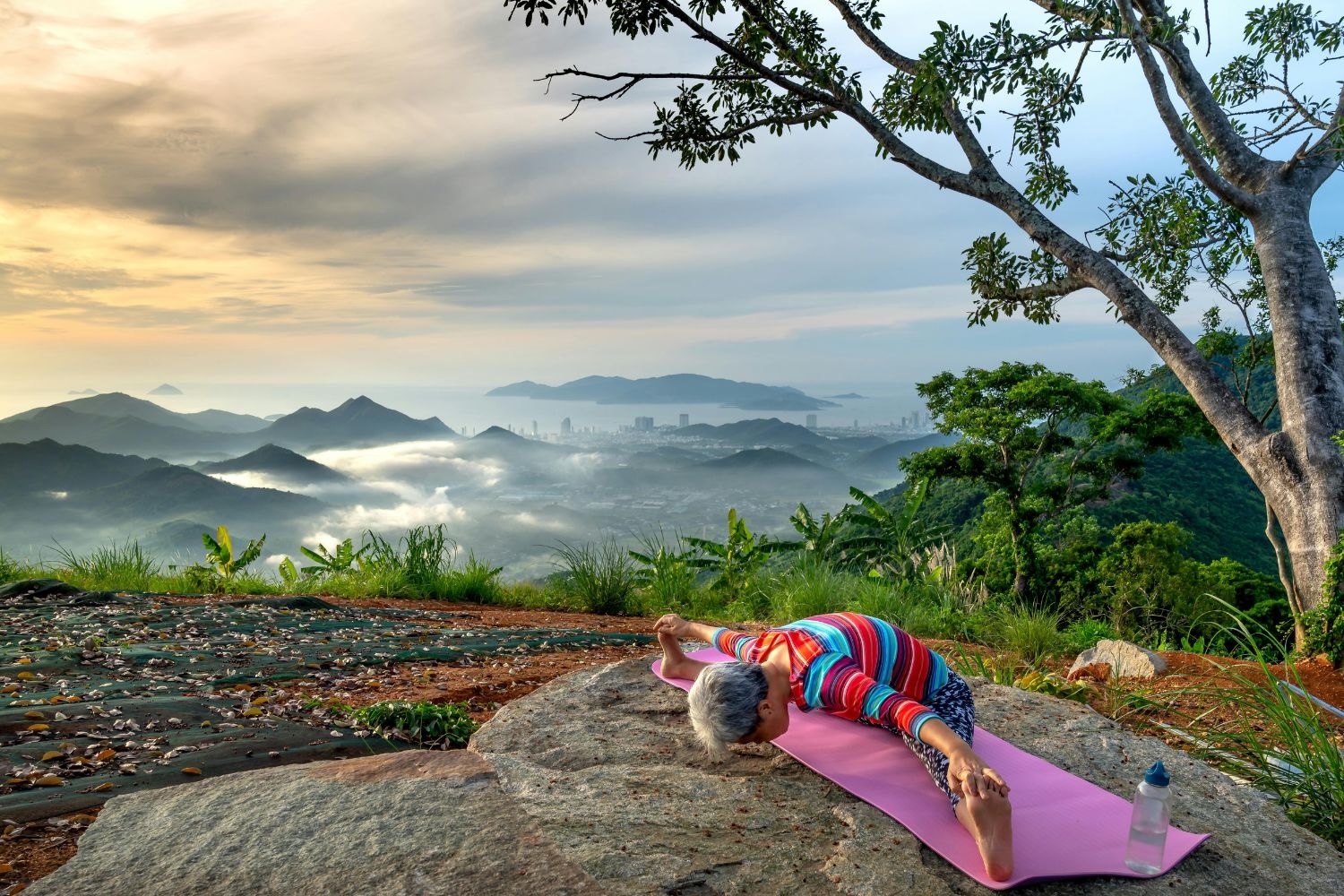
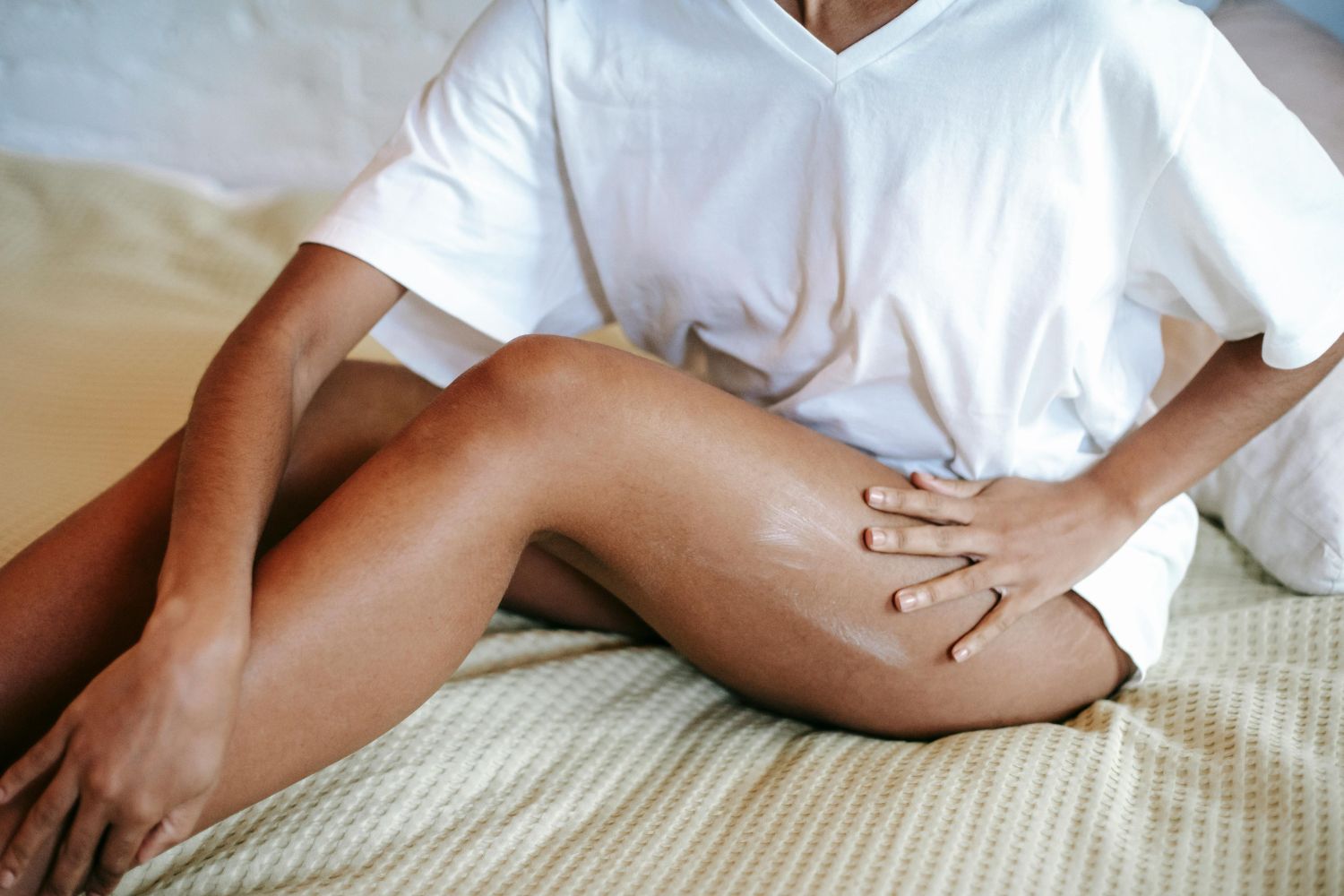
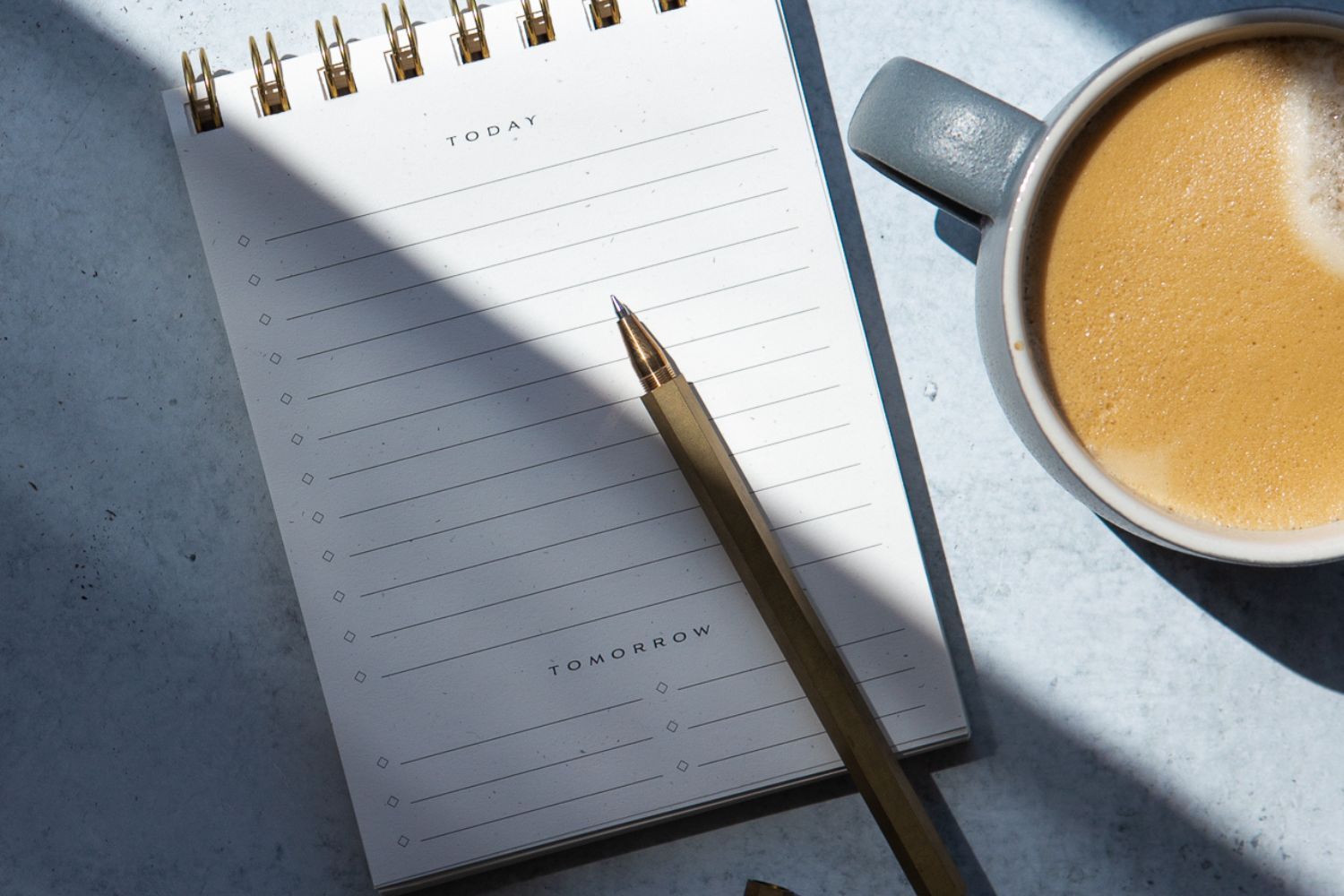

Brisia Rodriguez
Great column and very useful information. We definitely need some time to stop and be aware of our anxiety if we want to start managing it. Thank you.
Olga Rosales Salinas
Thank you for reading and commenting Brisia! You’re so right – slowing down is a big part of managing anxiety. I wish it was easier, but if get good at it (slowing down) it really does impact how we live our lives.
My next column is on radical acceptance around anxiety. I hope it helps!
Olga
nancy
I love it thank you for sharing Thank you!
Olga Rosales Salinas
Thanks for the support Nancy! Follow the site for more. Xoxox